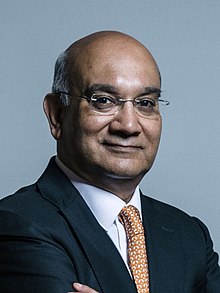The speech made by Keith Vaz, the then Minister for Europe, on 7 July 2000.
Your Excellencies, Ladies and Gentlemen, good morning.
This conference comes at a key moment for South East Europe. One year after the Kosovo crisis democracy is spreading throughout the region. People have exercised their right to vote in free and fair elections in Croatia, many parts of Bosnia and Herzegovina and in Montenegro. There will be elections this autumn in Kosovo, Albania and Bosnia and we hope that Serbian local elections and FRY state-level elections later this year will allow democracy to flourish there too.
We want to see a new EU Balkan agenda to encourage this trend, one which will show the practical benefits of living up to European standards and ideals which will strengthen support amongst ordinary people in the region for what Chris Patten has described as the road to Europe. As President Clinton said during his visit to Europe in June, our goal must be to de-Balkanise the Balkans. Relations with the European Union are already growing stronger.
EU ENLARGEMENT
Bulgaria, Hungary, Romania and Slovenia are negotiating to join the European Union. Macedonia and Croatia are well on the way to EU Stabilisation and Association Agreements. The European Union has set a clear path for Albania and Bosnia and the Federal Republic of Yugoslavia is also eligible once they meet the European Union’s conditions.
The prospect of closer EU relations and eventually EU membership is an important incentive for change. We welcome the growing evidence of commitments to European ideals and standards and to genuine intra-regional co-operation and I look forward to the summit hosted by the French Presidency in Croatia this autumn, which will be an opportunity to reinforce that message. The Stability Pact is reinforcing this process of Europeanisation, encouraging the countries of South East Europe to work together for shared goals. It has provided 2.4 billion euros for a variety of projects starting in the next twelve months. Britain has particularly supported the pact’s investment compact of which several of you must have attended yesterday’s meeting.
OVERCOMING LEGACIES OF THE PAST
Nevertheless there are significant challenges ahead for the region, including for Serbia. The West can and should help, but the real work has to be done by the people of South East Europe themselves. Overcoming the legacy of nationalism, extremism and war is a huge task, but South Africa, Northern Ireland and the Middle East show how old enemies can set aside their quarrels and work together for everyone’s benefit. France and Germany were at war for much of the first half of the last century, yet a common European destiny has made them and the rest of Western Europe firm allies and friends.
Constructive leadership is crucial. Look at the example of Croatia. The Croatian Government and people have witnessed a dramatic turnaround in their relationship with Europe since the beginning of the year. The same path, the same opportunities, are open to the people of Serbia, but not while they are held back from their rightful place in the European family by a selfish corrupt regime whose leaders refuse to be held responsible for their past actions. Milosevic has presided over the ruin of his country. The cost of Milosevic may have been as much as a hundred billion dollars, the difference between actual national income since 1991 and what that income might have been if Serbia too had embraced economic and democratic reform. Only when Milosevic has gone to The Hague can Serbia’s reconstruction begin in earnest and there should be no doubt of our willingness to help when that happens.
TRADE AND INVESTMENT
I hope the conference today will build links between us and the region in the areas where the European Union can really make a difference. Trade and investment, it is time for the EU to be bold, imaginative and generous. We should open its markets to South East Europe’s products and South Eastern Europe in return needs to attract investors by creating a favourable climate for investment. That is why I am so delighted to see here today so many leading members of the private sector. The private sector’s involvement of the reconstruction of the Balkans is absolutely crucial. We shall hear more from Sir David Wright on this point later. Secondly, civil society, people to people links between NGO’s, universities, towns, cities and other civic groups will help spread awareness of Europe.
The Lisbon Economic Council highlighted the importance of the information society for the EU. We want South East Europe too to exploit the opportunities of e-commerce and the Internet in increasing economic growth, breaking down ethnic barriers and facilitating freedom of information.
CONCLUSION
Finally, the European Union has committed over fifteen billion euros to South East Europe over the last decade, but Europeanisation is not just about a transfer of resources, but a transfer of vision, including the people of this corner of our continent and in our common European destiny. The European Union has just such a vision for the people of Central Europe and over the last decade tremendous change has already happened there. I hope for the same for South East Europe. Following this seminar we shall be establishing a UK-Balkans Task Force to build on what we have achieved here and to monitor progress. I shall be calling on some of you to take part in that Task Force.
